
CLAYTON NORRIS
VICE PRESIDENT, INDIGENOUS SERVICES
MNP
Clayton Norris, CAFM, MBA, CPA, CMA, is the Vice-President of Indigenous Services and National Leader for Indigenous Audit Services for MNP. He has been the team leader for a variety of management and financial advisory projects with Indigenous Nations, businesses and individuals.
Clayton has extensive experience in advisory services working with Indigenous communities providing accounting, tax and consulting services. With nearly 300 members, Clayton’s team has become one of the largest in North America serving First Nation, Métis and Inuit communities and businesses.
Clayton is on the Board of Directors at MNP and is on the Board of the Alberta Heart and Stroke Foundation.

DARRELL WELLINGTON
SENIOR VICE PRESIDENT
SYNTRONIC
Darrell has been in high-tech for more than 20 years in Canadian tech companies MOSAID Technologies, BlackBerry and now Swedish global tech company Syntronic. Syntronic is a Design House focused on developing embedded systems and all kinds of software in the areas of Medtech, Transportation, Telecom, Industrial and Defence. Darrell was the first Canadian employee of Syntronic which has grown to nearly 400 in about seven years in Canada. Darrell and Syntronic are driven to create great tech jobs for people in Canada and with the biggest challenge to hire the right talent, now focused on encouraging more people to consider careers in tech. Syntronic embraces the Swedish values that put a focus on treating employees well, equally and creating a rewarding social collaborative atmosphere. The Swedish values also provide a focus on innovation, efficiency and the environment. Syntronic is partnering with FNEAA to provide information and opportunity for First Nations People to explore careers in high-tech.
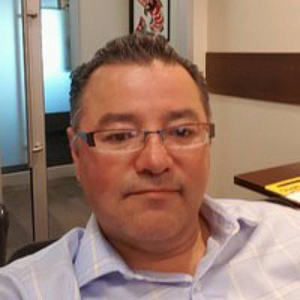
Darren Googoo has been the Director of Education for Membertou, a Mi’kmaw First Nation community for 19 years. Darren is also the incoming Chair of the CEA/EdCan Network, Chair of the Council on Mi’kmaw Education, and Chair of the Cape Breton Victoria Regional School Board. He has a strong passion for the creation and implementation of ideas that move Mi’kmaw education forward.
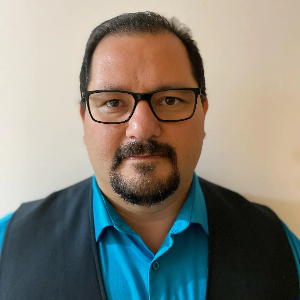
DAVIN DUMAS
DIRECTOR OF LANGUAGE & CULTURE
MANITOBA FIRST NATIONS EDUCATION RESOURCE CENTRE
Born in Vancouver, B.C., he moved home early and learned to speak his language in an immersed environment. Along with this, his understanding of the connection to the land grew and continues to grow. Before obtaining an education degree, he worked as a home and school coordinator and enrolled in the PENT program. As a certified teacher, he has been working in education for over 20 years. During this time, he has taught various grades and subjects, has been a vice-principal, a principal, and a Director of Education. As an Ojibway speaker, Davin values culture, local history, and family. He is a husband, a father and a moshom. Davin believes that educational leadership must focus on the growth and well-being of people and the communities to which they belong.

Maureen is a citizen of the Pasqua First Nation, where she currently serves as Director of Education. She has provided Indigenous education leadership for over three decades. Maureen has co-authored/authored curricula, textbooks, teacher guides and children’s literature.
In 2012, Maureen was awarded the “Indigenous Educator of the Year” by the Canadian Teachers’ Federation. Maureen earned her Bachelor of (Indian) Education degree from the First Nations University of Canada (SIFC) and holds a Master’s Degree in Curriculum and Instruction (U of R). Maureen believes in the unlimited potential of all learners to grow and develop over their lifetime.
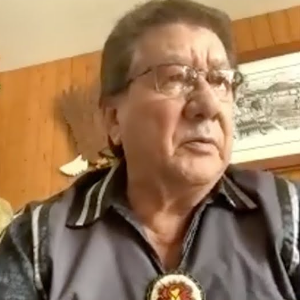
Michael Kanentakeron Mitchell is one of the most respected First Nations leaders in Canada. Born in Akwesasne and raised by a traditional family, Kanentakeron had the benefit of a strong cultural and spiritual upbringing. Fluent in the Mohawk language, Kanentakeron has successfully applied traditional diplomatic skills in solving today’s challenges to First Nations on local, regional and national levels in all areas of development and renewal.
For three decades, Kanentakeron has served his people in a political capacity as Chief and Grand Chief in one of most volatile, yet progressive First Nations communities in Canada. His vision to help restore the independence of the Mohawk people of Akwesasne is based on applying the best of both Hotinonshonni philosophy and modern democratic government systems.
During the late sixties and early seventies, Kanentakeron was involved in the conquest to retrieve the Islands that were owned by the Mohawks of Akwesasne. However, at the time was leased out by the department of Indian Affairs, under a 999 year lease. The occupation leads to the tittle of the islands to be reverted back to the Akwesasne Mohawks.
In 1968, Kanentakeron organized an international bridge blockade that challenged Canada to restore the border crossing rights of First Nations under their inherent right and the Jay Treaty of 1794. Canada later dropped all charges and made special provisions for Akwesasne for tax free border crossing status.
During this time period there were ongoing skirmishes not just between Mohawks and Canada but between the elected system supporters and the traditional followers of the longhouse. At that time, Kanentakeron would be asked to get involved to the elective system of governance and initiate changes that would bring the power of decision making back to the community instead of Ottawa (Indian Affairs) making the decisions.
In 1982, Kanentakeron was elected as a District Chief to the Mohawk Council of Akwesasne representing Kahwenoke Island district. In 1984 he became the Grand Chief of MCA, then with a membership population of 10,000. He held the position until 2002 when he retired from 20 years in politics. In the summer of 2003, the community brought him out of retirement to again serve as District Chief of Cornwall Island for one more term; afterwards he resumed his position as Grand Chief until 2006, where the membership population had increased to 14,000. In 2009 Kanentakeron returned back to his position as Grand Chief of the Mohawk Council of Akwesasne and held this position until 2015, when he decided to take a break from politics, to devote more time on his book on Nation Building. In 2018 he began working for the Assembly of First Nations in Ottawa acting as advisor to National Chief as well as resident Elder for the AFN national organization.
Prior to politics, Kanentakeron has also worked as an Ironworker (Local 440), film maker (National Film Board) and Director of Cultural Education at the North American Indian Traveling College.
SPECIAL INTERESTS AND ACHIEVEMENTS
Kanentakeron played lacrosse all his life. His interest in lacrosse is not just on the playing field but was also the President of the Iroquois Lacrosse Association, a position he maintained for almost 20 years. On the national scene he was the only Native representative to the Canadian Lacrosse Association where he served as First Nations Director for close to seventeen years. In 2014 the Canadian Lacrosse Association awarded Kanentakeron with the Lester B. Pearson Award, in recognition of his unselfish dedication and outstanding contributions of sportsmanship and distinguished leadership to the game of lacrosse.
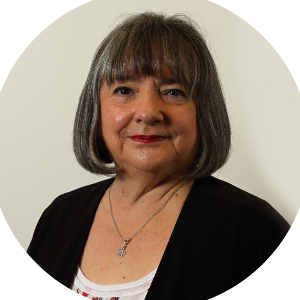
Dr. Tremblay is Turtle Clan of the Mohawk Nation from Six Nations of the Grand River Territory in Southern Ontario. Having a long and distinguished career in education and administration, currently she is the President and Chief Executive Officer of the First Nations Education Administration Association. She has served as Chief Executive Officer of the Assembly of First Nations, National Aboriginal Health Organization and the Six Nations Band Administration. She was the Vice President of Education and Training for AFOA Canada overseeing the design, development, delivery, and maintenance of certification programs in Finance and Administration, Professional Development Workshops, and participated in education research projects. She was a member of the Future Skills Council of Canada, the former Chair of the National Advisory Committee of the Purdy Crawford Chair for Aboriginal Business at Cape Breton University, NS; an Associate Professor at Six Nations Polytechnic Institute for nine years; and is currently a member of the Financial Literacy Working Group for Indigenous Peoples with the Financial Consumer Agency of Canada. Dr. Tremblay was honoured to receive the prestigious Indspire Award for Education in 2015. And on the home front, she takes special delight in the teaching and learning activities undertaken with her eleven year old granddaughter Alexis.
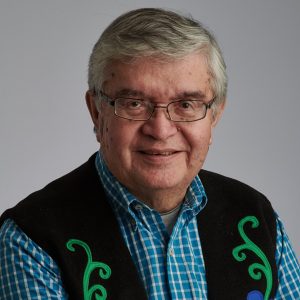
SIMON BRASCOUPÉ
SENIOR VICE-PRESIDENT EDUCATION, COMMUNICATIONS AND SERVICES
FNEAA
Simon Brascoupé Anishinabeg/Haudenausanee – Bear Clan is a member of Kitigan Zibi Anishinabeg First Nation, Maniwaki, Quebec. He is an Adjunct Research Professor at Carleton University and Trent University. He was recently designated Certified First Nations Health Manager (CFNHM) from the First Nations Health Manager Association. He has a research interest in land based healing, traditional medicine and traditional knowledge. He conducts research and writes on cultural competency and safety. He has written and worked in the field of traditional knowledge and intellectual Property Rights. He is the Chair of the CIHR Institute of Aboriginal Peoples Health Advisory Board. Previously Simon Brascoupé was Chief Executive Officer, National Aboriginal Health Organization; Director, Primary Health Care Division, First Nations and Inuit Health Branch, Health Canada; and Director, Aboriginal Affairs Branch, Environment Canada.

TAIAIAKE ALFRED
CONSULTANT IN INDIGENOUS GOVERNANCE
MOHAWKS OF KAHNAWÀ:KE
Taiaiake Alfred is a Kahnawà:ke Mohawk writer and consultant. His work focuses on strengthening First Nations’ governance structures, Indigenous resurgence strategies, and the restoration of ancestral land-based cultural practices. Taiaiake has served as a political advisor to his own and other First Nations, and has been an active supporter of Indigenous movements, since 1987. He has a degree in history from Concordia University and a Ph.D. in Government from Cornell University. He is the author of three scholarly books, has been awarded a Canada Research Chair and a National Aboriginal Achievement/Indspire Award.
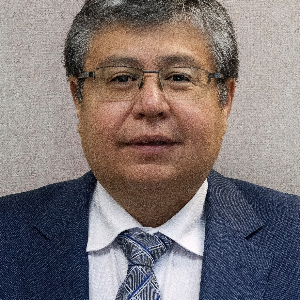
MPA, B.Admin, FCPA, FCGA, C.Dir, CAPA, CAFM
Spent over twenty-five years in senior finance and management positions with high profile Indigenous organizations. He has demonstrated leadership and made a significant contribution to the field of Indigenous finance, management and leadership. He is the co-founder of the AFOA Canada – Harvard Business School Executive Education Program on Leading People and Building Sustainable Communities that is held annually at the Harvard Business School in Cambridge Massachusetts. In 2017, he founded the inaugural international conference on Indigenous Governance, Management and Finance on Building Indigenous Sustainable Communities. In 2018, co-founder of a social enterprise called Ind.Genuity Chartered Professional Accountants. Since 2011, he is the President and Chief Executive Officer of AFOA Canada. Prior to this position, Mr. Goodtrack was the Chief Operating Officer of the Aboriginal Healing Foundation with responsibility for over half a billion-dollar healing fund. In his spare time, he is in the Agri-business sector as a part-time farmer. Mr. Goodtrack was appointed by the Assembly of First Nations and the Minister ISC to sit on the New Fiscal Relationship working group where he is the Co-Chair. He is a sessional instructor at Carleton University’s Graduate Diploma on Indigenous Policy and Administration. Mr. Goodtrack is married to his wife Genevieve. They have two daughters.